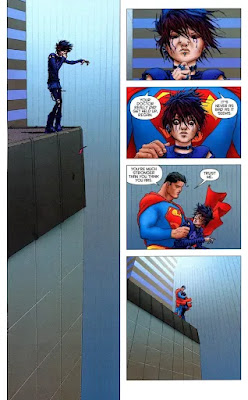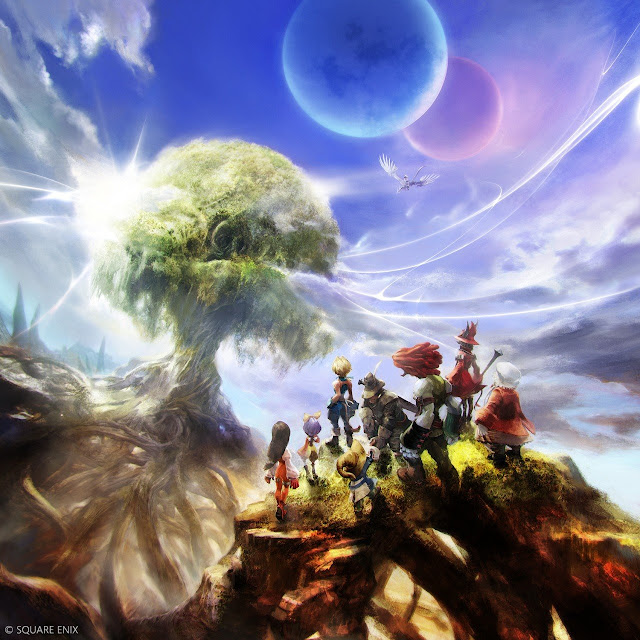I've had a deep love for comic books for decades, and I've been a fan of Superman ever since little kid me came across a videotape of Christopher Reeve's portrayal of the character in the first Richard Donner film. Superman has existed since 1938, and naturally there have been dozens of different interpretations of him, but my favourite has always been the OG corny nice guy who uses his powers for good. There is a certain charm in the idealism of that concept. And this is exactly what the promos for the new 2025 'Superman' film seemed to promise. Having now watched 'Superman', I can say that it was everything I had hoped it would be.

It's a simple concept but it doesn't need anything more added to it in order to work. People may not be able to fly or stop bullets with their hands, but people can just choose to be good just because it's the right thing to do. I'd argue that the only way to make a character like Superman sympathetic enough so that readers (or viewers) can connect with him on a substantial level is to make him as human as possible. There is no appeal in an omnipotent, flawless, macho, inapproachable person who is allergic to emotions, no matter what the folks who self-label as life coaches and think that there is an instruction manual to human connections try to tell you, and any story about such a character can only go so far. Clark is a guy with tremendous powers and capabilities, and out of all the things he could do with them, he chooses to help and protect those who need him.
The rest of the cast is also fantastic. Nicholas Hoult delivers a great performance as Luthor, making for a very convincing megalomaniac billionaire, driven by ego and capable of real cruelty. Edi Gathegi is brilliant as Mr. Terrific, and Rachel Brosnahan simply is Lois Lane. The chemistry between Lois and Clark was spot on, you can see why these two people fell in love with each other, and even how the different aspects of their personalities fit together.
It was a smart choice showing the characters already being a couple, with Lois also knowing Superman's identity. The movie would have gotten tedious really fast if it tried to be yet another origin story. The tale of them getting together has been told numerous times before, and as one of the most famously endgame couples in the history of comic books, their relationship is built on more than physical attraction and Lois's fascination with Superman.Contrary to the Batman and Catwoman dynamic, the most interesting part of the relationship between Clark and Lois comes after the characters end up together. Clark cooking for Lois when she comes home, Lois being in Clark's childhood bedroom, meeting his parents, noticing him interact with his dog, noticing his posters on the wall and all the other items in the room that tell a little story of who this sweet, nerdy guy is as a person, is something that comes from a place of affection, and it's nice to see the characters established that way.

Krypto the dog was hands down another highlight of the film. I think this version, even if he is rather different to the one from the comics, works excellently. He is ridiculous and loveable, and steals every scene regardless, but I think those who have had the experience of owning a dog whose inability to read the room and follow the rules is only surpassed by his ability to love you enthusiastically will feel a little extra fondness for his sloppy excitement (and maybe a little appreciation for the fact that dogs aren't capable of flying in real life).
There are some parts of the plot that feel a little messy, but overall 'Superman' was an undeniably enjoyable watch, and most importantly, it was a film that truly understands the character. My only major gripe would be how much of the second part of the film was shown in the trailers. Some scenes I'd rather have experienced for the first time while watching the movie. At the same time, I loved how 'Superman' doesn't shy away from being colourful, it never tries to pretend that it's anything other than a comic book movie, it never attempts to hide its ridiculousness by trying to give a logical explanation as to why there's a cute dog wearing a tiny red cape flying around.
At the same time, it also remains relevantly political, in the way Superman has always been ever since his creation by Jerry Siegel and Joe Shuster 87 years ago. Despite how the word might have become taboo for certain parts of the internet, the story of Superman has always been interconnected with real-life issues, and beyond what label any of us uses to describe the basic concept of the character, Superman has always essentially existed as an answer to the question "what would someone who is fundamentally a good person do if they had the power to stop harm and injustice?"
The story and the themes are delivered through a modern lens, showing how smear campaigns, xenophobia, and disinformation can be weaponised, and how mob mentality works in the age of social media, but at the same time the movie stays true to the spirit of the character.
Superman is the most powerful man on earth, but what defines him is his vulnerability and his heart. He is nearly indestructible, but also a little dorky, compassionate, witty, he remembers the details from a first date, he is occasionally awkward, he loves his unruly dog, heck he loves all dogs. He stops mid-fight to save a squirrel, he cares about Malik the street vendor who once gave him free falafel, he acts from a place of wanting to protect the innocent, he cries, he inspires others to be better, and he believes kindness is the most punk rock thing there is. Because it is.



























